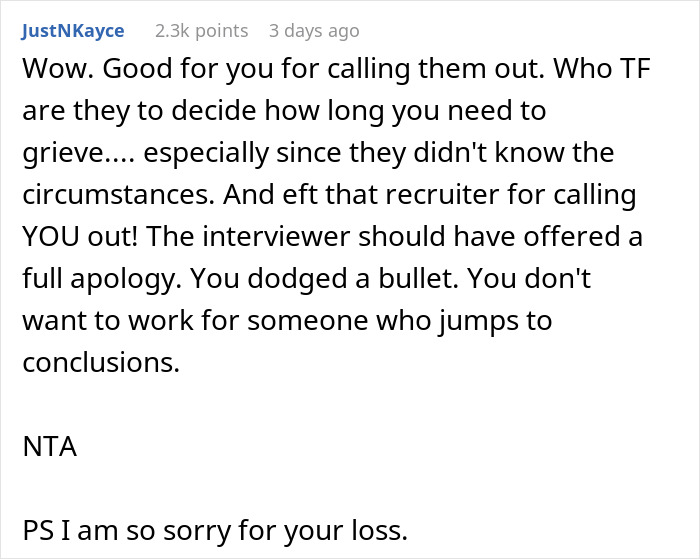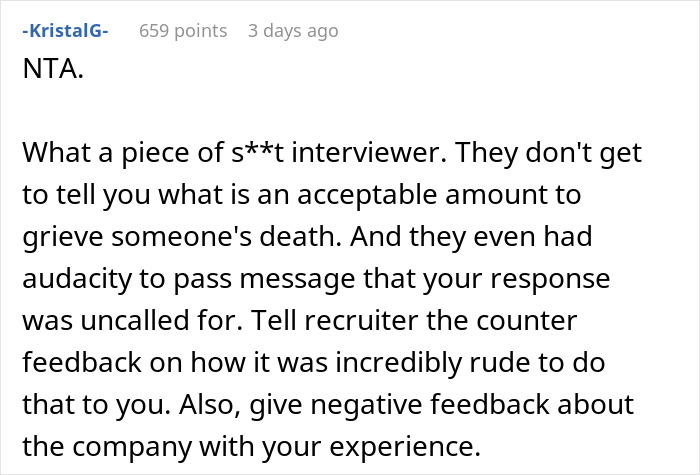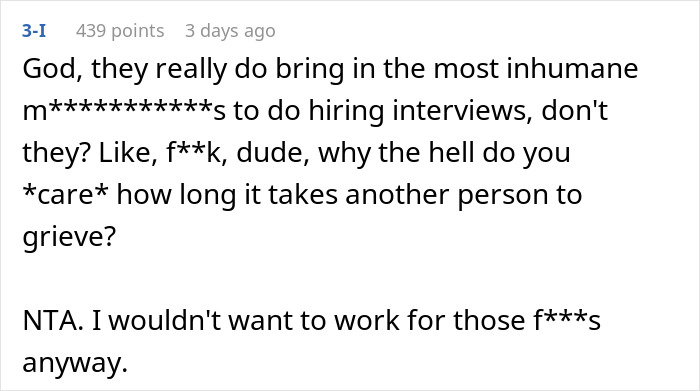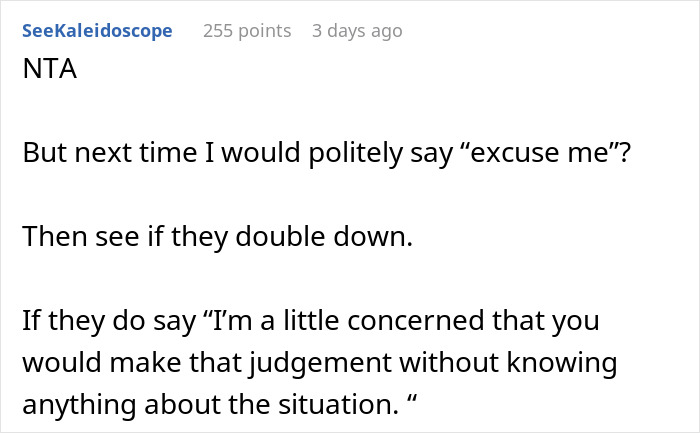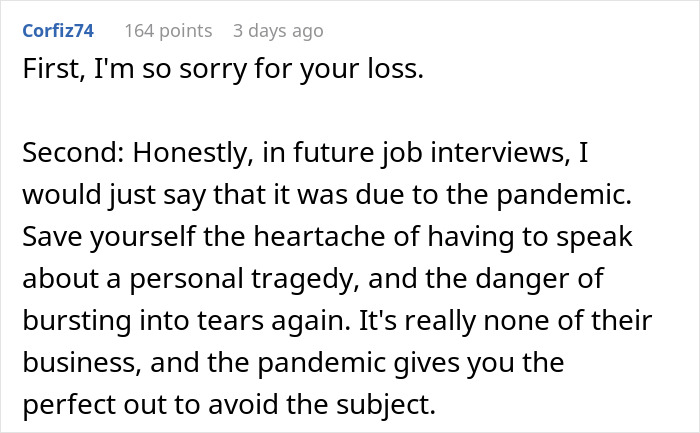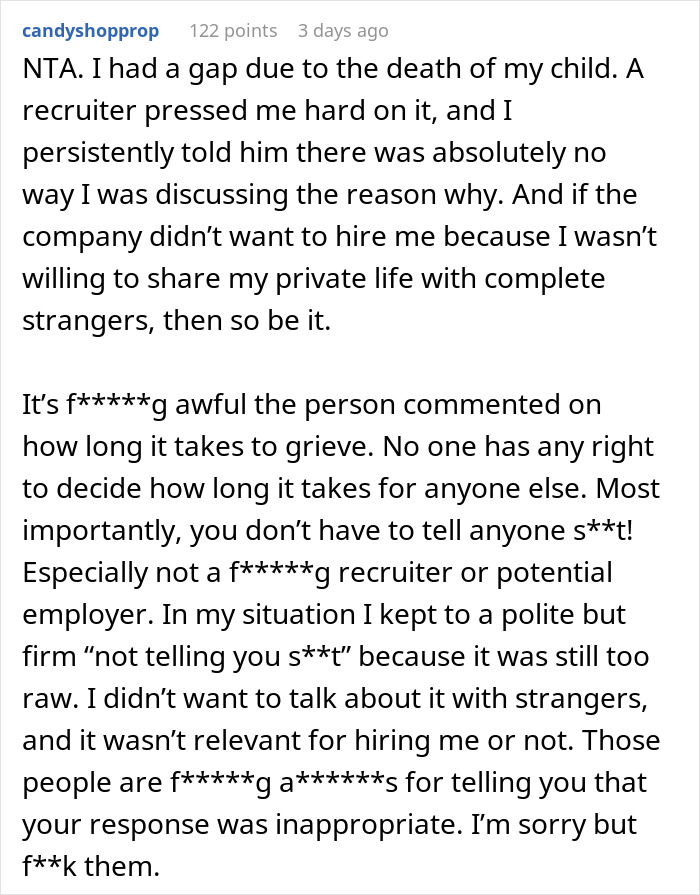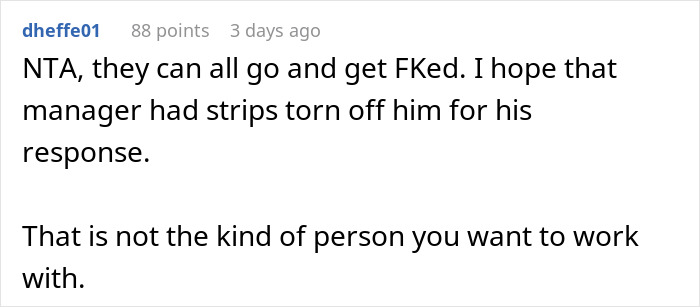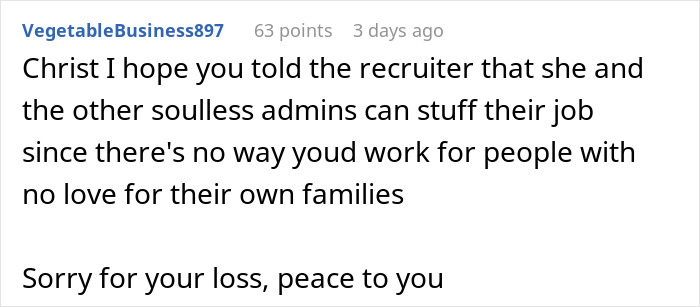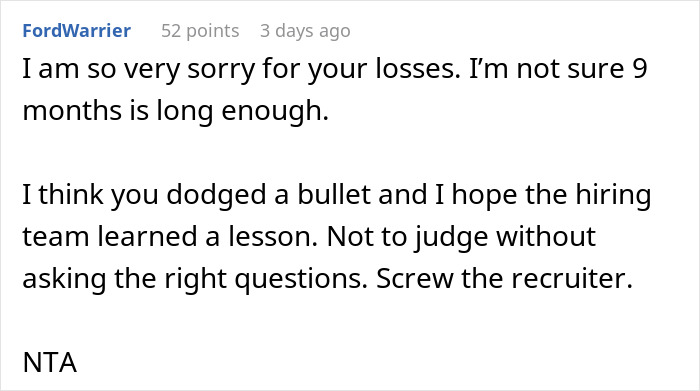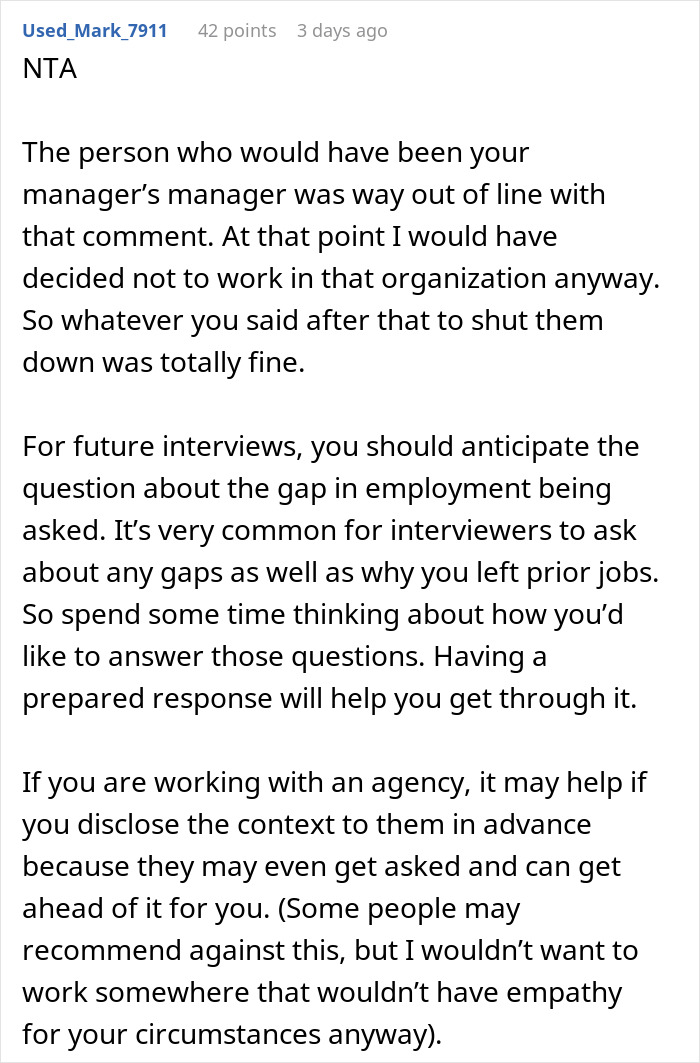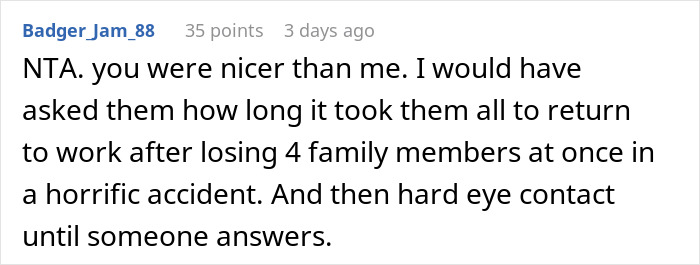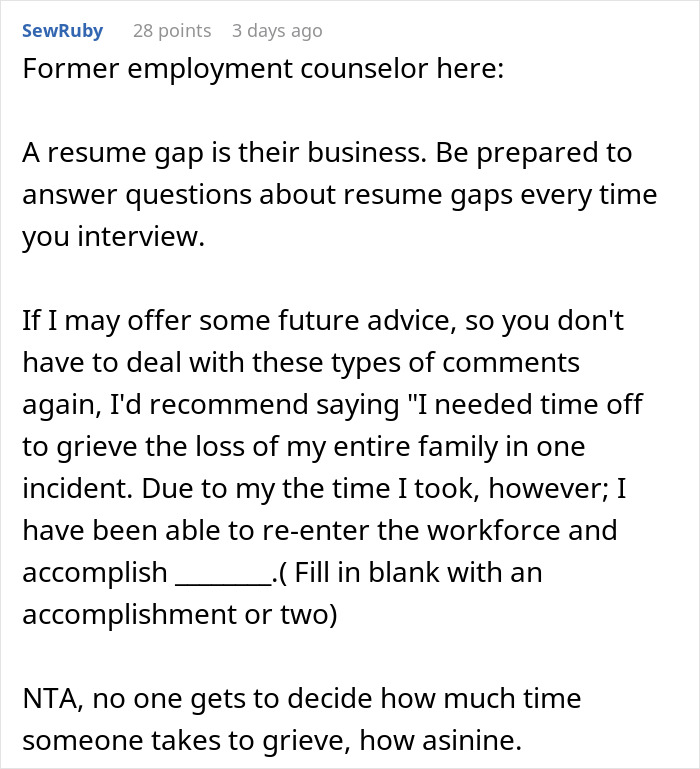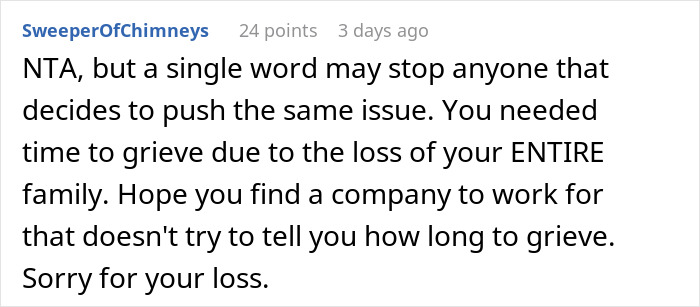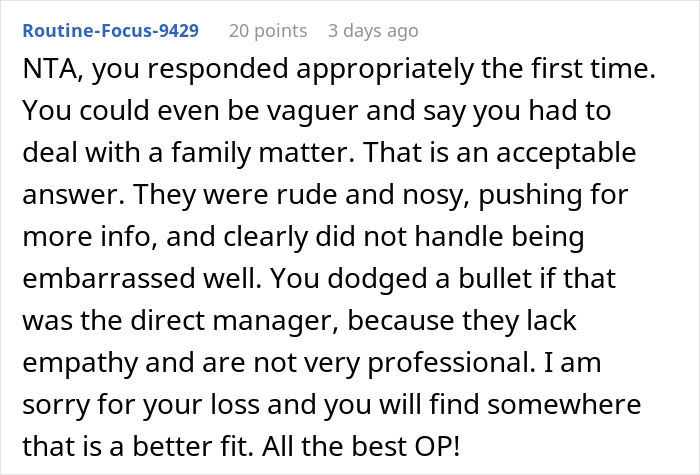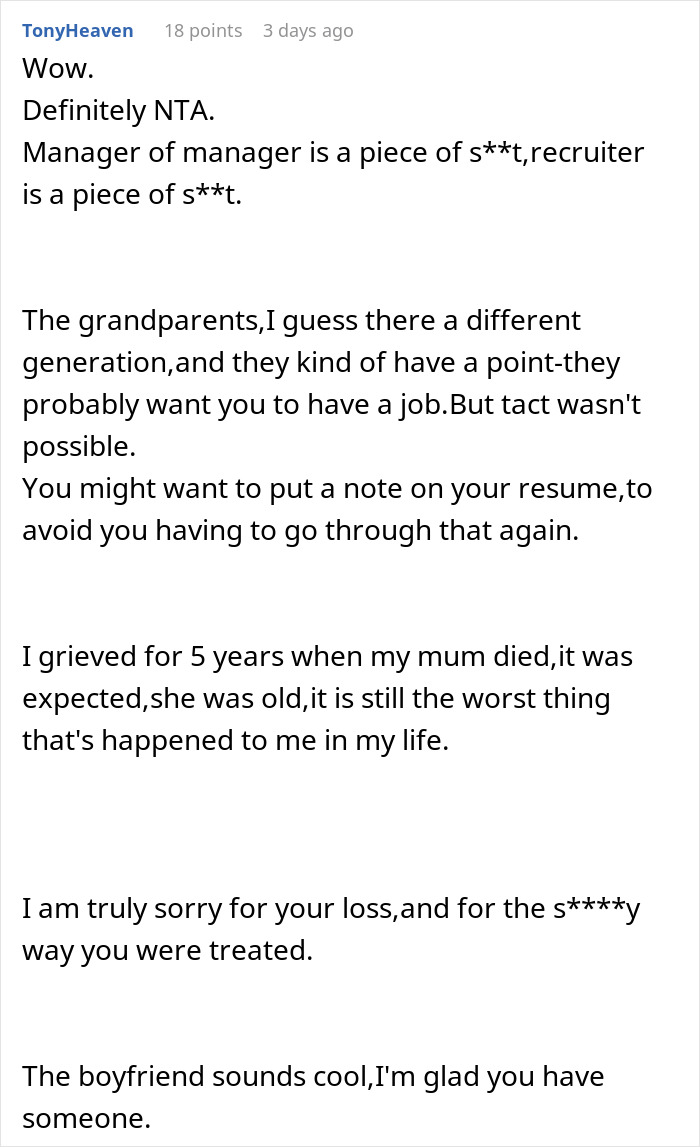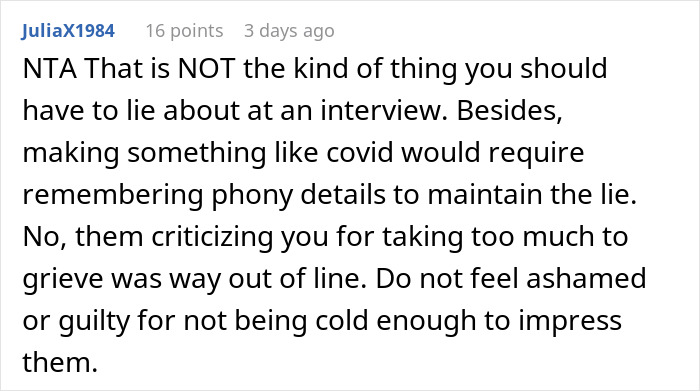There are a myriad of reasons why a person might take a break from working. However, knowing how to approach these résumé gaps can be quite challenging, especially when it’s the last thing an individual wants to talk about.
A case in point is redditor NeitherDepth5290, who recently shared his experience of trying to address the 9-month empty space on his CV. His motivation for it was more than justifiable, but the interviewer went completely wrong about it, pushing him to snap back.
Knowing how to approach résumé gaps can be quite challenging

Image credits: Tima Miroshnichenko (not the actual photo)
Not ready to address his, this man snapped back at his interviewer
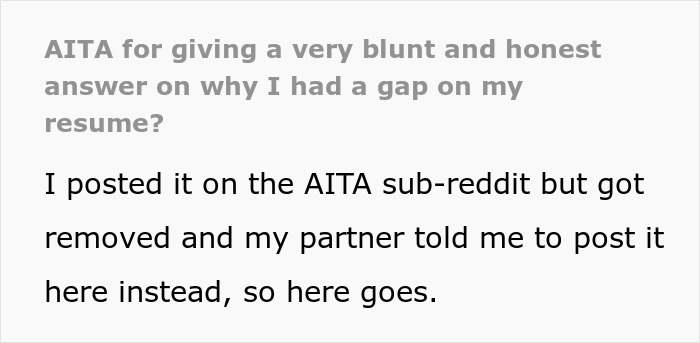
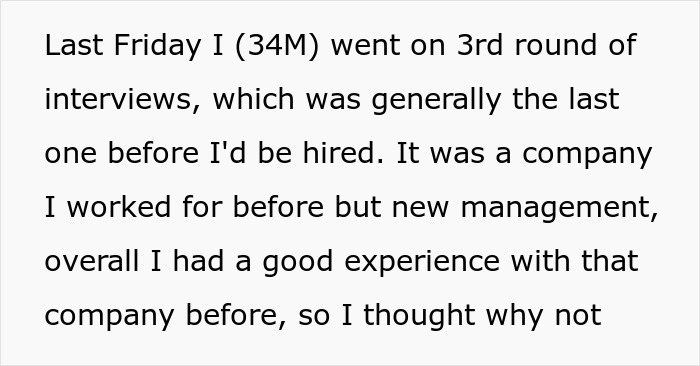

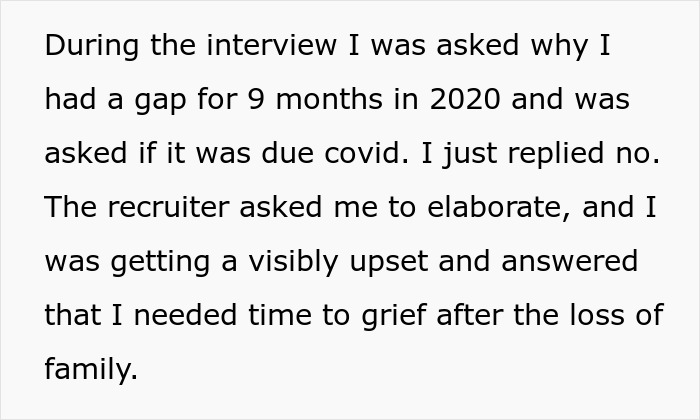
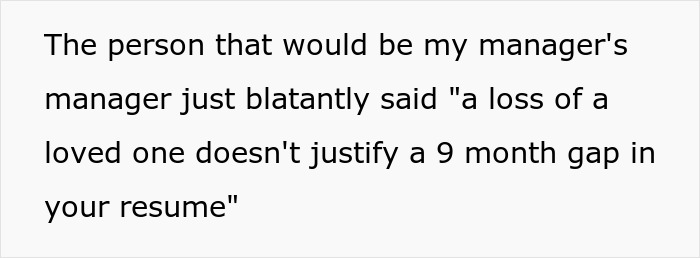
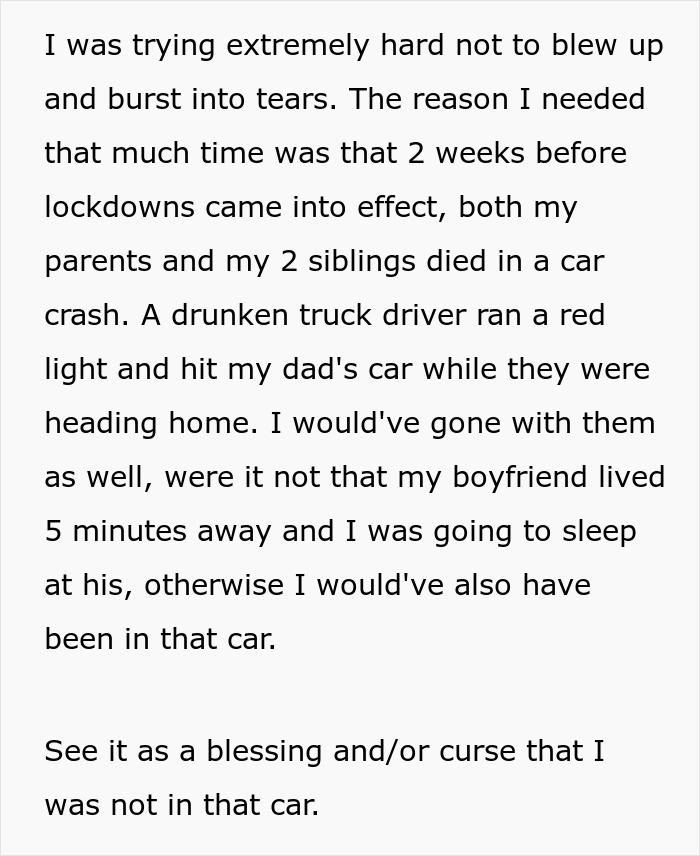
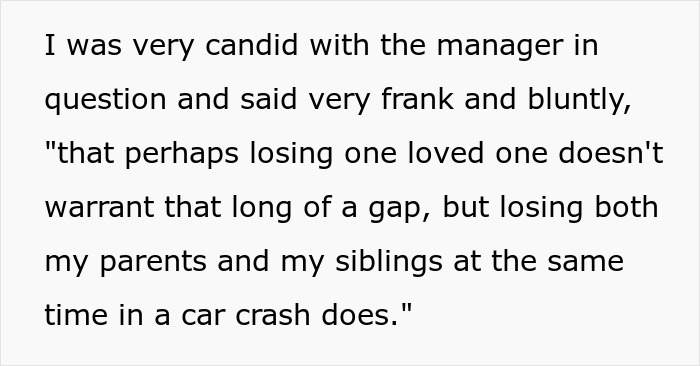
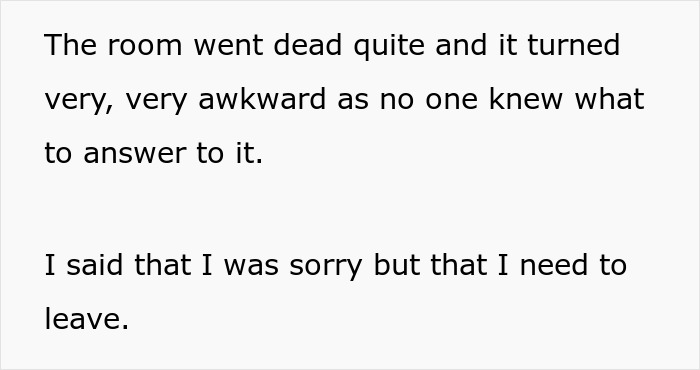
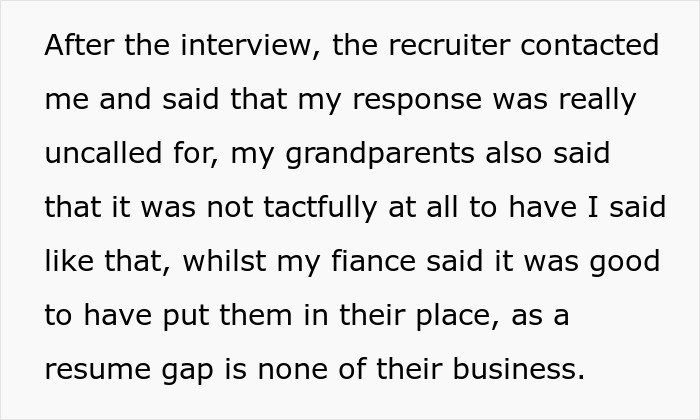


Image credits: Andrea Piacquadio (not the actual photo)
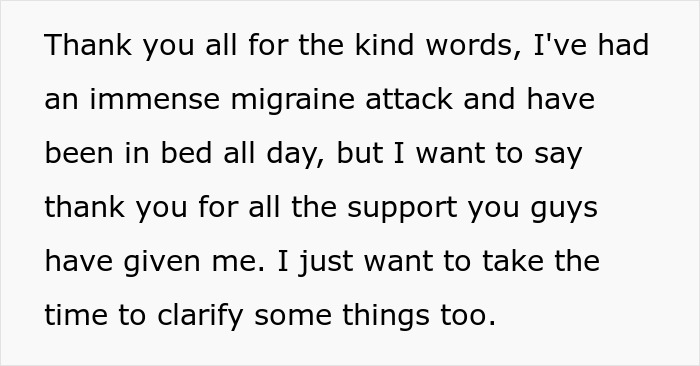

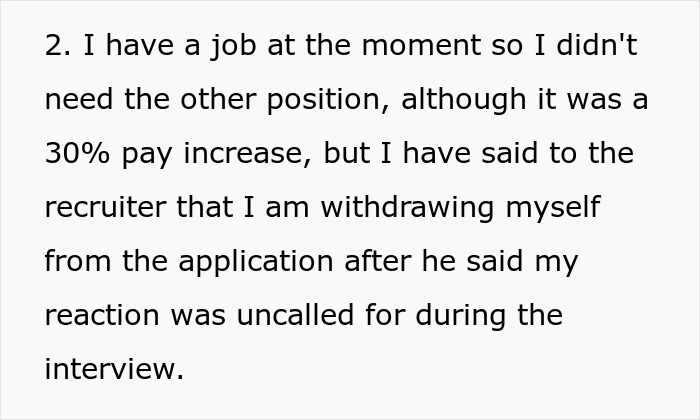
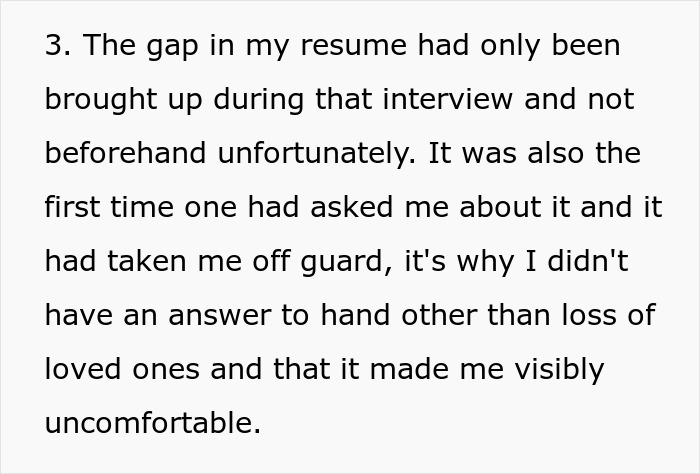
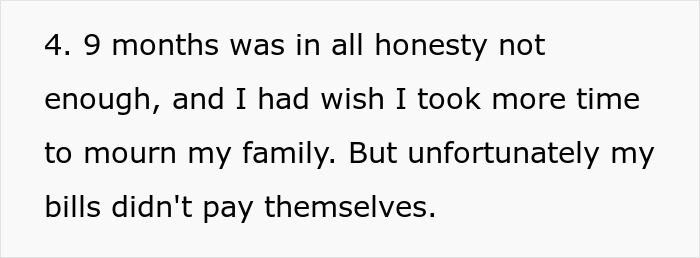
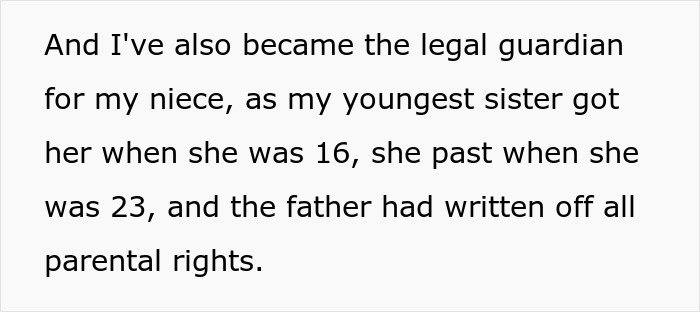
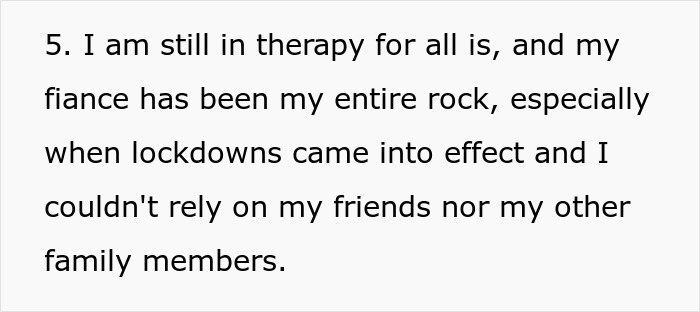
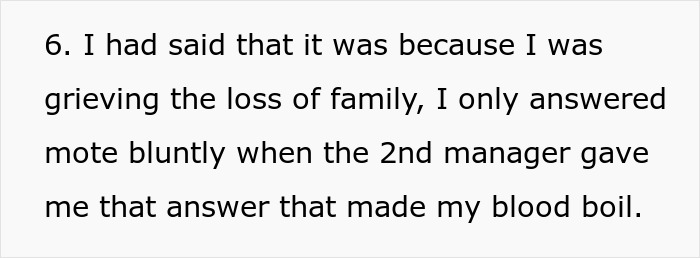


Image credits: RDNE Stock project (not the actual photo)
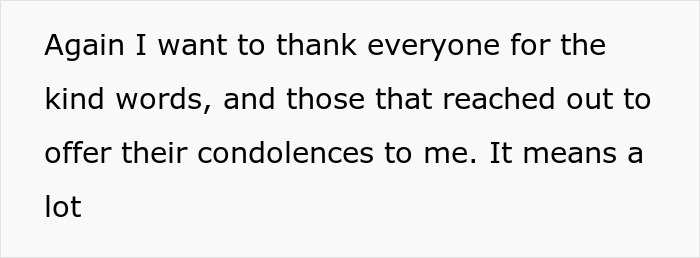
Image source: NeitherDepth5290
84% of people believe there is a stigma associated with being out of work
When an employee loses a family member or a close loved one, they can use bereavement leave to grieve their passing and use the time to arrange funeral services. In the US, a worker on average receives one to five days off, with three being the most common.
A return to routine might be good for some, as there really isn’t a right way to grieve. However, it’s very unlikely that a person can fully function just 72 hours after losing an immediate family member. Since some companies don’t offer bereavement leave or employees find it insufficient, they might decide to take a break from work, just like the author of this story.
Consequently, this creates a résumé gap, which can be undeniably tough to address, as it was found that 84% of people believe there is a stigma associated with being out of work. Meanwhile, roughly 67% assume that this affects their ability to find a new job. Having such preconceptions can increase the uneasiness that is already present before an interview and impede the ability to sensibly approach the blank space in a CV.
Career experts advise being prepared for how one is going to address the employment situation. Writing down the response and practicing it can make the person more comfortable when the question arises.
It’s advised not to say why an individual exactly took off time, as it can lead to personal bias in the hiring process
If the person was taking time off for personal reasons, employers are generally understanding. At the same time, it’s advised not to say why an individual exactly took off time, as it can lead to personal bias in the hiring process.
One can instead say, “I took a career break for personal reasons that required my attention. Now, I’m ready to return to work and bring full dedication to my new role.” If the recruiter continues to push, that is a sign of a lack of empathy, and you might want to reconsider working in a place with such values.
Ultimately, it’s humanly impossible to control how others perceive you. Therefore, Jenn Lim, CEO of organizational consulting, recommends focusing on the skills the person has gained during that time. “Don’t discount the experiences gained during a career break, and give credit to the life skills we experience that can’t be found in a training & development course…soft skills are in great demand,” she explained.
“To overcome perceptions of being out-of-touch, candidates should clearly articulate the steps they took to stay informed and maintain or develop their skills during their break,” she adds.
Commenters supported the author’s answer
